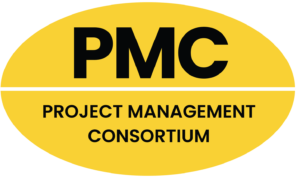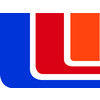Article submitted by Beverly Brooks.
At the annual Canadian Council for Public-Private Partnerships conference in Toronto in November, Dirk Ahlborn, Co-Founder and CEO, Hyperloop Transportation Technologies (HyperloopTT), spoke about how HyperloopTT , which was founded in 2013, now has more than 800 engineers and professionals who work in various countries around the world. Some of these employees are full time employees and contributors, while others work in exchange for a combination of salary and stock options. HyperloopTT is essentially using a crowd collaboration approach (a mix of team collaboration and crowdsourcing) to develop a transportation system based on the Hyperloop concept, which was originally envisioned by Elon Musk in 2013.
A hyperloop is a sealed tube or system of tubes through which a passenger pod may travel free of air resistance or friction and convey people or objects at high speed and drastically reduce travel times over medium-range distances. A hyperloop travels at the speed of 760 miles per hour (mph) which is actually faster than an airplane. The magnets force the passenger capsule to levitate once it is driven forward by an electric motor. Once the capsule is levitating and traveling through a tunnel with its air removed, HyperloopTT claims very little energy is required to sustain speeds of over 700 mph.
A hyperloop can achieve speed three times faster than high-speed rail which has historically been impeded by difficulties in managing friction and air resistance. The vacuum tube train concept theoretically eliminates these obstacles by employing magnetically levitating trains in airless or partly evacuated tubes, enabling speeds of hundreds of miles per hour. Up until now, however, the high cost of magnetic levitation and the difficulty of maintaining a vacuum over large distances has prevented this type of system from being built.
HyperloopTT, like its technology, is moving very rapidly to negotiate agreements in various countries:
- United States: In May 2015, HyperloopTT negotiated a deal with landowners to build a 8 kilometer test track along a stretch of road near Interstate 5between Los Angeles and San Francisco.
- United Arab Emirates: In December 2016, HyperloopTT and the government of Abu Dhabiannounced plans to conduct a feasibility study on a Hyperloop link between the UAE capital and Al Ain, which HyperloopTT claims will reduce travel time between Abu Dhabi and Al Ain to just under 10 minutes.
- India: In September 2017, HyperloopTT announced and signed a public-private partnership agreement with the Andhra Pradeshstate government of India to build a track from Amaravathi to Vijayawada. HyperloopTT is claiming that the one hour trip will be reduced to 5 minutes.
- Ukraine: In June 2018, Ukraine’s Infrastructure Ministry reached an agreement with HyperloopTT to develop its high-speed vacuum transport technology. Under this agreement, a joint research and development center will be created in Ukraine which will not only work on HyperloopTT’s technology but will also develop new materials and components for modern transportation systems.
- China: In the last quarter of 2018, the Company signed an agreement with the Guizhou province of China to build a high speed transportation system in its eastern city of Tongren. The venture will be a public private partnership with state-owned Tongren Transport, Tourism and Investment Group. The transportation system will connect Tongren with Guiyang, the capital of Guizhou, which is 250 miles away. Once completed, the hyperloop system would shorten the transit time from a one hour flight to 20 minutes, dramatically improving the state of freight and passenger movement.
- France: In May 2019, HTT presented the EU with generic guidelines for hyperloop design, operation and certification. In June 2019, HyperloopTT met with officials from the United States Department of Transportation, USDOT, at the HyperloopTT Safety and Certification Center in Toulouse, France. At the same time, other members of HyperloopTT met with the USDOT at the agency’s offices in Washington D.C. to present a technical overview of Hyperloop technology and the certification guideline.

Hyperloop Transportation Technologies’ test track in Toulouse, France
Even though numerous countries, including the U.S., the UAE and China have signed agreements with HyperloopTT to develop hyperloop transportation systems, building on the proposed routes has not begun. Construction, however, is now underway on its 1000-feet long first track in Toulouse, France which serves as HyperloopTT’s main R&D research centre. HyperloopTT will begin the process of integrating its full-scale passenger capsule on this track once its construction is completed. Human passenger trials are expected to start in 2020.

Hyperloop Transportation Technologies’ test track in Toulouse, France
HyperloopTT continues to make progress on a number of fronts. Last year HyperloopTT unveiled a prototype of its first passenger capsule in Spain. At the CCPPP conference, Dirk Ahlborn announced that HyperloopTT’s first commercial project would be developed in Abu Dhabi.
HyperloopTT is not alone in its undertakings to develop a leading edge transportation system for the 21st century. Its competitors include Elon Musk’s Boring Co, Virgin’s Hyperloop One and Canadian firm TransPod.

A full-scale Hyperloop passenger capsule presented by Hyperloop Transportation Technologies in 2018
In November 2019, HyperloopTT and the Northeast Ohio Areawide Coordinating Agency revealed the results of the Great Lakes Hyperloop Feasibility Study, which was conducted in collaboration with Transportation Economics & Management Systems, a transportation planning firm. According to the study, a HyperloopTT system connecting Cleveland, Chicago, and Pittsburgh is feasible and can generate substantial regional economic benefits (operation costs that do not require public subsidies, 900,000 jobs over 25 years and a decrease in carbon emissions). This study is the most recent evidence that a hyperloop is a financially and logistically feasible transportation system in North America.
































